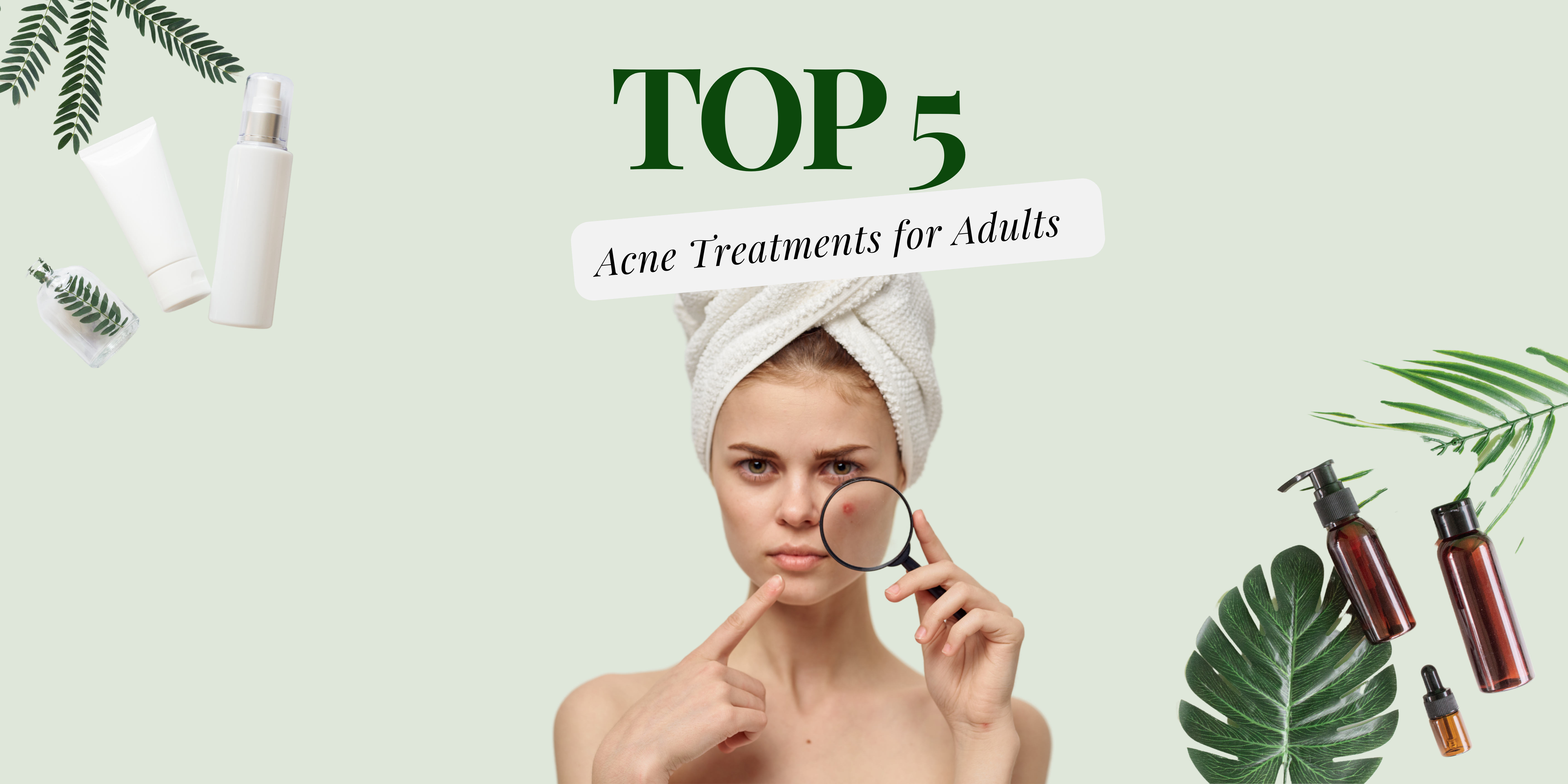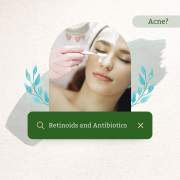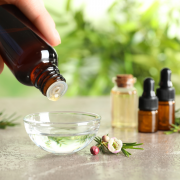Top 5 Acne Treatments for Adults

Acne isn’t just a teenage problem. Many adults struggle with persistent blemishes and breakouts. If you’re one of them, you’re not alone.
In this blog, we’ll explore the top five acne treatments for adults. We’ll delve into over-the-counter products, prescription medications, and even natural remedies. Our goal is to help you find an effective solution for your adult acne.
Understanding Adult Acne Cause, Symptoms and Treatment
Adult acne can be a complex issue. It’s not just about having a few pimples. Adult acne can be persistent, and it often requires a different approach than teenage acne.
Understanding the type of acne you have is necessary. This knowledge can guide you in choosing the right treatment.
- Hormonal acne
- Cystic acne
- Blackheads
- Whiteheads
Causes of Adult Acne
Several factors can contribute to adult acne. Hormonal changes, stress, diet, and certain medications can all play a role. Even everyday items like your smartphone or pillowcase can harbour acne-causing bacteria.
Impact on Mental Health and Quality of Life
Acne isn’t just a skin issue. It can also affect your mental health and self-esteem. Seeking treatment for acne can improve both your skin health and your overall quality of life.
Over-the-Counter Acne Treatments
Over-the-counter (OTC) products can be effective for mild acne. They are readily available and can be a good starting point for treatment. However, it’s important to understand that not all OTC products are created equal. Some key ingredients to look for include:
- Salicylic acid
- Benzoyl peroxide
- Sulfur
- Resorcinol
Salicylic Acid and Benzoyl Peroxide Products
Salicylic acid and benzoyl peroxide are common ingredients in OTC acne products. Salicylic acid helps to unclog pores, while benzoyl peroxide kills acne-causing bacteria. These ingredients can be effective, but they may also cause dryness or irritation for some people.
Non-Comedogenic Skincare Products
Non-comedogenic skincare products are essential for acne-prone skin. These products are designed to not clog pores. Using non-comedogenic products can help prevent new acne from forming while you treat existing blemishes.
Prescription Medications
When OTC products aren’t enough, prescription medications may be the next step. These treatments are often more potent and can tackle more severe or persistent acne. However, they should be used under the guidance of a healthcare provider. Common prescription acne treatments include:
- Retinoids
- Antibiotics
- Hormonal treatments

Retinoids and Antibiotics
Retinoids are powerful acne fighters. They work by speeding up cell turnover and preventing clogged pores. Antibiotics, on the other hand, work by reducing inflammation and killing excess skin bacteria.
Hormonal Treatments
Hormonal treatments can be effective for adults with hormonal acne. These treatments work by regulating hormone levels to reduce acne breakouts. However, they are typically only prescribed to women, as they can have feminising effects on men.
Dermatologist-Recommended Treatments
For stubborn acne, professional treatments may be the answer. These treatments are often more intensive and can provide faster results. However, they should be performed by a trained professional to ensure safety and effectiveness. Common professional acne treatments include:
- Chemical peels
- Microdermabrasion
- Light and laser therapies
Chemical Peels and Microdermabrasion
Chemical peels use acids to exfoliate the skin and unclog pores. Microdermabrasion, on the other hand, uses tiny crystals to remove dead skin cells. Both treatments can help reduce the appearance of acne scars and improve skin texture.
Light and Laser Therapies
Light and laser therapies can target acne-causing bacteria and reduce inflammation. These treatments can be particularly effective for inflammatory acne. However, they may require multiple sessions for the best results.
Natural and Alternative Remedies
Natural remedies can be a good option for those who prefer a gentler approach. These treatments often use ingredients found in nature to combat acne. Common natural remedies include:
- Tea tree oil
- Green tea extract
- Diet and lifestyle changes

Tea Tree Oil and Green Tea Extract
Tea tree oil has anti-inflammatory properties that can help reduce acne. Green tea extract, on the other hand, is rich in antioxidants that can protect and repair the skin. Both can be found in various skincare products or used in their pure form.
Diet and Lifestyle Changes
Diet and lifestyle changes can also play a role in managing acne. Reducing dairy and high-glycemic foods may improve acne for some individuals. Stress management techniques, such as meditation and exercise, can also help reduce acne breakouts.
Creating an Effective Acne Skincare Routine
Creating an effective skincare routine is crucial in managing acne. This routine should include products that target acne and prevent future breakouts. Key steps in an acne skincare routine include:
- Cleansing
- Treating
- Moisturizing
- Protecting
Consistency and Patience
Consistency is key when it comes to acne treatment. It’s important to use your acne treatments regularly and give them enough time to work. Remember, acne treatments can take several weeks to show results, so patience is key.
When to See a Dermatologist
If your acne is severe or doesn’t respond to over-the-counter treatments, it may be time to see a dermatologist. A dermatologist can provide more potent treatments and personalized advice. Never hesitate to seek professional help if your acne is causing you distress or affecting your quality of life.
Conclusion and Next Steps
In conclusion, there are numerous acne treatments for adults available, each with its own benefits and potential side effects. Your next step should be to consider your options, consult with a dermatologist if necessary, and start on the path towards clearer, healthier skin.


You’revaliant